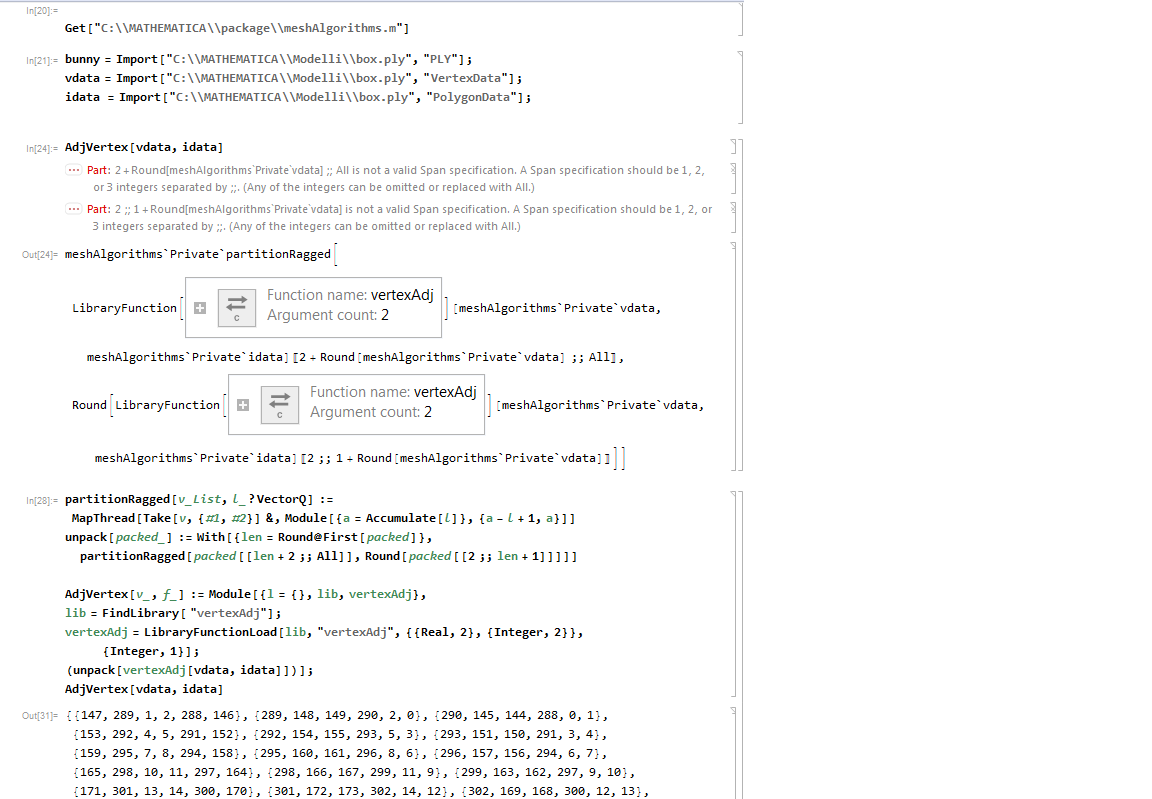Hello,
I tried to build a package that load a dll but when I call the package function I get the following error (screenshot with error)

If I tried to copy the body of package function on notebook and it work.
This is my package file "meshAlgorithms.m"
BeginPackage["meshAlgorithms`"]
AdjVertex::usage = "adjVert=adjVertex[v, f] returns a list adj vertex";
Begin["`Private`"]
partitionRagged[v_List,l_?VectorQ]:=MapThread[Take[v,{#1,#2}]&,Module[{a=Accumulate[l]},{a-l+1,a}]]
unpack[packed_]:=With[{len=Round@First[packed]},partitionRagged[packed[[len+2;;All]],Round[packed[[2;;len+1]]]]]
AdjVertex[v_,f_]:=Module[{l={},lib,vertexAdj},
lib=FindLibrary[ "vertexAdj"];
vertexAdj=LibraryFunctionLoad[lib,"vertexAdj",{{Real,2},{Integer,2}},{Integer,1}];
(unpack[vertexAdj[vdata,idata]])];
End[]
EndPackage[]